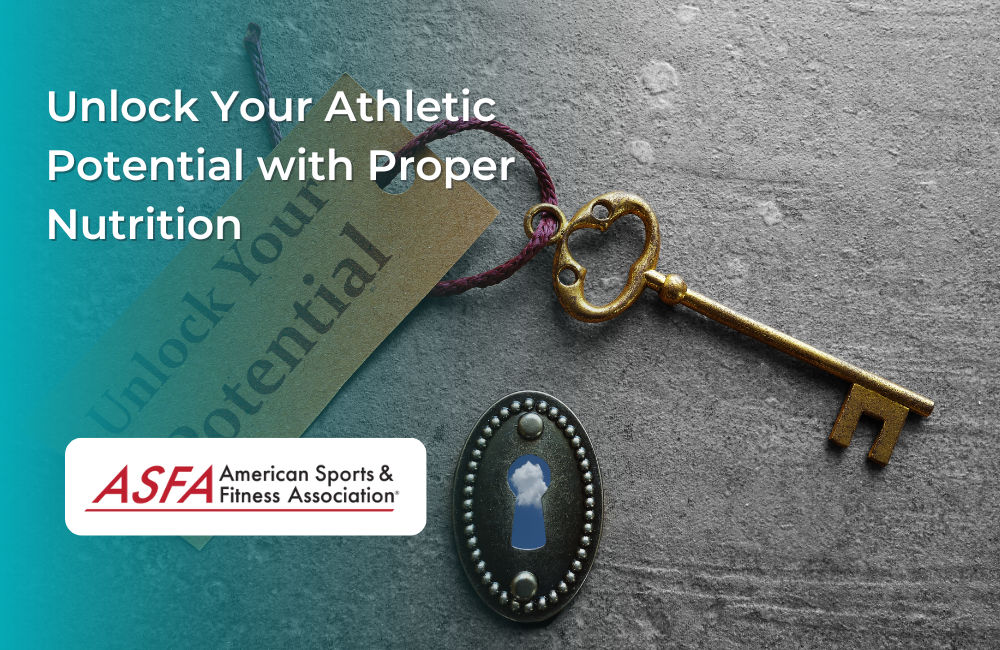You can't see your body like you can see your face. But that doesn't mean it's not important: your body is a machine, and what you put into it makes a huge difference. The wrong nutrition can lead to weight gain, poor performance, and even injury. But if you're eating well, your body will feel good, perform well under pressure, and recover faster from tough workouts.
In this post, I'll show you why proper nutrition is essential for athletic performance—and how easy it is to achieve!
What is athletic potential?
Athletic potential refers to the maximum ability of an athlete. It's influenced by genetics, but also training, nutrition, and other factors.
The best way to achieve your athletic potential is through proper training and nutrition.
Athletic performance can be improved with proper training and nutrition because nutrients are the chemical components of food that drive metabolism, growth, and repair in our bodies.
Why is nutrition important for athletes?
Nutrition is important for athletes because it helps them perform better. It also helps them recover from workouts, maintain healthy body weight, and avoid disease. In addition to these physical benefits, nutrition can help you stay focused on the task at hand and make decisions about your future that benefit both yourself and others around you.
For example: Say you're trying out for a college football team next semester after taking some time off from football following high school graduation. If you're not eating enough calories or getting enough protein in order to build muscle mass (and thus increase strength), then there's no way that coach will consider giving you any playing time this season! Or maybe he'll give it some thought--but only if he thinks his star player won't mind sharing some of his spotlight with an up-and-coming rookie like yourself...which means only good things could come from paying attention now rather than later!
Nutrients come in many forms (protein, carbohydrates, fat vitamins minerals). They're broken down into smaller molecules before they're absorbed into cells where they provide fuel for energy production during exercise or any other activity requiring energy output. Some nutrients are stored in our bodies for future use.
What's the best way to eat for athletic performance?
The best way to eat for athletic performance is a balanced, healthy diet. This means eating enough calories and getting the right amount of protein, carbohydrates, fat, and fiber. It also means making sure that you're getting plenty of micronutrients (vitamins and minerals) in addition to essential nutrients like iron or vitamin C.
To keep yourself fueled throughout the day while training hard -- or even just sitting at your desk -- aim for three meals with two snacks between them that include both carbs and protein: one high-carbohydrate meal plus one high-protein meal plus two snacks containing both carbs and protein each day is ideal for most people who are physically active on a regular basis. You'll want these meals/snacks spaced out evenly so that they'll provide steady energy levels throughout the day rather than making you feel hungry with long gaps between them while also avoiding overeating when eating all at once during dinner time at night!
By eating a balanced diet rich in nutrients, you will give yourself a competitive advantage.
By eating a balanced diet rich in nutrients, you will give yourself a competitive advantage. A well-rounded diet can help you perform at your best and feel energized throughout the day.
Eat a variety of foods:
- Eat plenty of fruits and vegetables every day. These are high in vitamins, minerals, and fiber which are essential for good health. The more colorful your plate is with these types of foods, the better!
- Choose whole grains over refined ones like white bread or pasta whenever possible because they have more fiber than processed carbs do--which means they'll keep hunger at bay longer than their less nutritious counterparts will be able to do so by themselves.
- Be mindful about portion sizes: it is recommended to eat between 1-2 cups per day depending on gender/age group (ages 14+) but it's important not to go overboard either way (too little vs too much). If you're trying out different recipes for yourself then look up how many servings there should be per recipe beforehand so nothing goes wasted unnecessarily!
Conclusion
If you want to be your best, you have to put in the work. Nutrition is one of those areas where it's easy to get lazy and just let whatever happens happen. But if you're serious about reaching your full athletic potential, then it's time to take a look at what you're putting into your body and make some changes if necessary.




